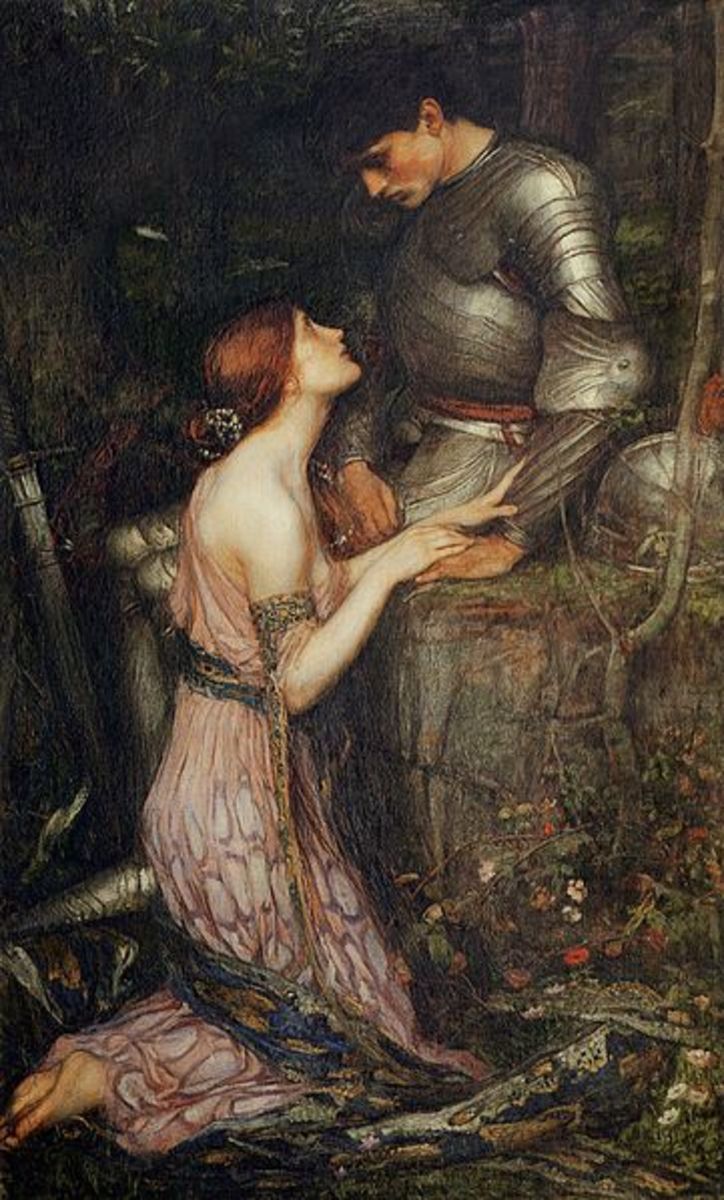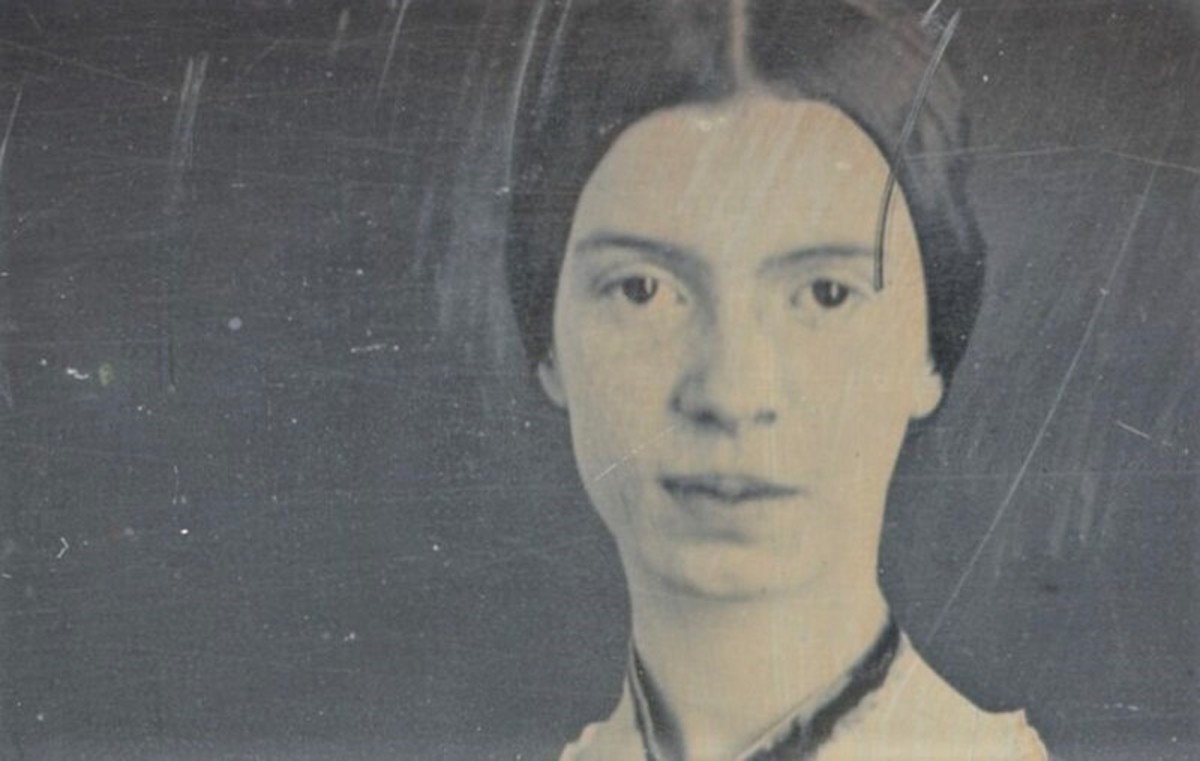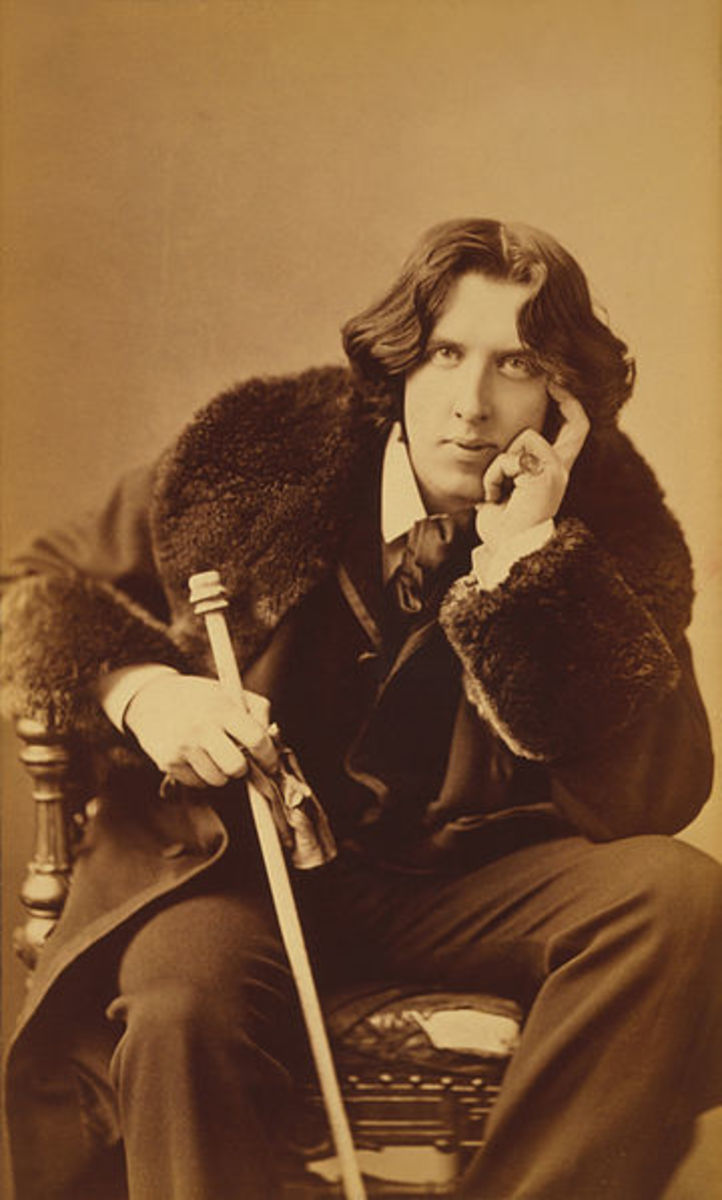Women in Literature
Emily Dickinson
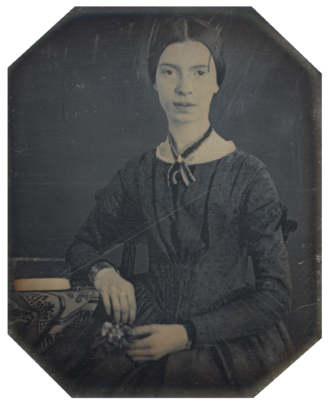
An Analysis of Emily Dickinson's "Further in Summer than the Birds."
This is my attempt to interpret the meaning in a poem that illustrates both nature and vocabulary. I used a dictionary to decipher this poem. I read that Emily Dickinson was fond of reading Webster's Dictionary and using words with a lesser known meaning. I also found some words carry religious connotations I was previously unaware were attributed to them.
Further in the Summer than the Birds
I think this means after the birds have fledged, or fall.
Pathetic from the Grass
Pathetic can either mean to arouse sympathy, or to be lower than. In this case I believe Dickinson is using the word to mean "lower."
a minor Nation celebrates
She hears a small celebration ... she hears something coming from under the grass.
Its unobtrusive Mass
By unobtrusive, I think Dickinson means "unoffensive" or "pleasant." she uses the word mass here, I think, to mark it special or holy. Mass could also be inferring size ... and thus unobtrusive, the source is small.
No ordinance to be seen
Webster's defines ordinance as "an authoritative ruling" and I am picturing a no tresspassing sign, or some warning against public display.
So gradual the Grace
Grace is a little tougher. It can mean a gift from God trough sanctification. Here I think it means beauty, gradually the sound is getting louder.
a pensive Custom it becomes
The narrator has listened before. The narrator has used this time to listen and think on many occasions. Pensive means "seriously thoughtful" and custom means "habitual practice," So the narrator listens to this event every afternoon and spends time thinking.
Enlarging Loneliness
The narrator is alone while listening to this celebration and is aware of being alone with her thoughts and the sound of crickets or grasshoppers. I see a person alone just before dusk, outside in a yard, listening to the grasshoppers and looking at the horizon, feeling small.
Antiquest felt at Noon
Okay, this is a rough one. I couldn't find the word anitquest. I can't determine if it is meant as "antique-est" or other. I did find a possible definition, I found the word antiphon and it is defined as a monastic choir. i went on researching and found that an antiphon is sung before or after a canticle or psalm. Since Dickinson used the word mass, I have to assume that her word "Antiquest" has a similar meaning, like a call and response prayer, or song. Canticle is used later in the poem making this definition work. I can also apply it as "anti-quest" as in look no further...or as "antiqu-est" as in age-old. This is kind of fun ... she may have meant them all.
when August burning low
I think she just meant later in August, or autumn
arise this spectral Canticle
Because she does not see the source of the singing, she uses the word spectral. I really like the sound of "spectral canticle" and also the images the words send. Alliteration, these words sound good together ... singing ghosts ... spectral can mean spirits, but it also can mean color spectrum, and so, we are looking at moving grass under a blue sky? CAnticle/cantor, religious song, response sung in church ... cantor ... Jewish ...she sure packs a lot of wallop into four words!
Repose to Typify
She imagines that they are confiding in her, or that they are confiding to god, I'm not sure. Repose can mean "to confide in" and typify means "to embody the typical characteristics of", so I think the canticle reminds Dickinson, again, of singing at a worship service.
Remit as yet no Grace
Remit means to send money at a distance, like remit payment. But here I think she means remits no grace to mean no direct response from god. Grace can mean elegance, beauty or sanctification by God. This time she is moving away from religion an into a more organic frame of thought.
No furrow on the Glow
I found the first definition of glow to be "shine without a flame," but I don't think that is how glow is meant here. I found another definition of glow to be "alertness" and I think it fits. I would interpret this line as even though she doesn't feel the grace of God, it doesn't lessen the experience, there is no wrinkle in her alertness.
yet a Druidic difference
Druidic means before Christ or pagan, so she now feels more pagan, more down to earth
enhances Nature now
A final emphasis of nature over theology, at least in this experience.
My final take-away is that this poem is a pretty whimsical comparison of insects singing and church customs. People sing in church to honor God, and insects sing in nature to glorify nature. I think it is a very pretty comparison!
Louisa May Alcott
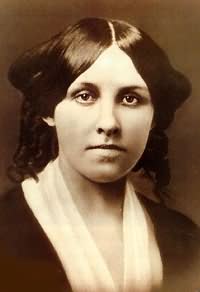
Transcendental Wild Oats
Louisa May Alcott is probably most well known for her novel "Little Women." I chose to write about this short, and lesser-known story. Both the novel and this short story deal with women under oppressive circumstances
"Transcendental Wild Oats" .is an autobiographical, short story. Alcott lived on a commune started by her uncle. The women in this story are oppressed in a variety of ways from mental to physical. The men in this story seems to have grand ideas with no idea how to follow through with them. Mrs. Lamb defers to her husband and forsakes her previous way of life to move to the commune. The men in the story promoted various ideas from farming technique to apparel with no skill to make anything come to fruition. The women, Mrs. Lamb included, have concerns for their children, but are complacent with the situation. The story uses ridiculous illustrations of the male incompetency offset by the sighs and labor of the women. I think the women knew, Mrs. Lamb included, that this idealistic venture was doomed to fail before it was ever endeavored. Alcott makes no attempt to veil the aspirations of her father, or the apathy of her mother. She has written with sardonic humor about every day life on a failed commune. I particularly like the way the men are so seriously pondering synthetic leather, or who will plow the fields, while nothing is actually accomplished. The women raised the children, sewed by candle light and harvested the grain. I think Alcott believed that her mother had an obligation to protect her children from their father's poor judgment. Alcott clearly disagreed with the subservient gender role. I believe she exercises extreme sarcasm with her name choices in the story as well; lamb for a follower, hope for one who knew better, and biblical names for all the men. This is a good read and will shed a little light on early feminism.
Charlotte Perkins Gilman
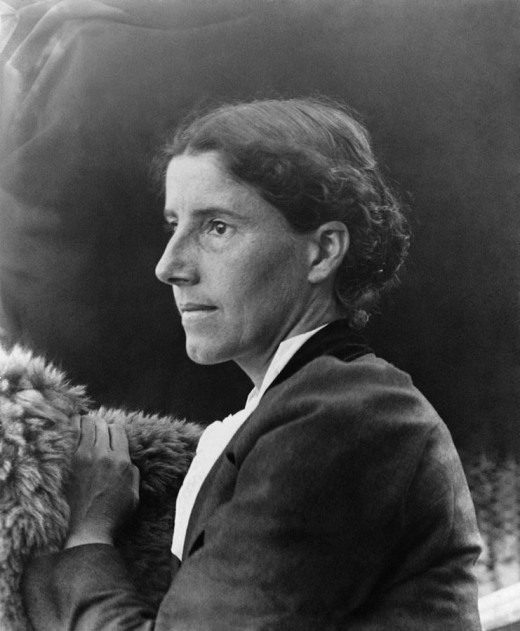
The Yellow Wall-Paper
This is an intriguing story written by Charlotte Perkins Gilman. The female narrator in this story begins by suffering a "nervous weakness" and is presumably insane by the end. This story is open to debate because we cannot know the mental condition of the narrator before her confinement, or if her mental deterioration was the result of her treatment. Gilman never gives us a concrete answer to the situation, but it appears the protagonist goes mad in the end. I read this story and came away with the idea that the physician husband had other interests besides his wife's welfare in mind. I cannot imagine that he did not notice a marked decline in his wife over the time of her confinement. He puts a relatively normal human being in the room and is run over by a lunatic at the end, repeatedly. -"Now, why should that man have fainted? But he did, and right across my path by the wall, so that I had to creep over him every time!" The woman is oppressed by society in-so-far as the understanding of depression and it's treatment at that time. She is oppressed by her husband and his treatment of her through deprivation and isolation. She is forsaken by her extended family, all of whom defer to her husband's judgment. I believe Gilman used the word creep with the intention of illustrating the gradualness of this situation that no one thought to circumvent. This is a great little story to spark conversation!
Zora Neal Hurston
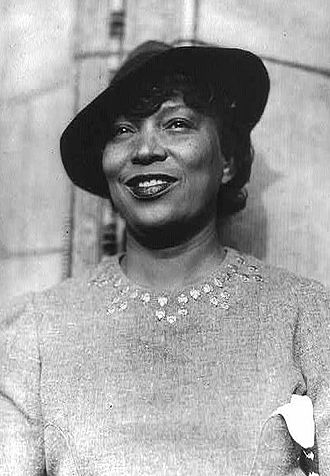
Sweat
"Sweat" is a story written by Zora Neal Hurston. The female character in this story is oppressed by society as well as her husband. Delia lives with a an that abuses her mentally and physically. She lives in a town where neighbors are aware of her situation, but do not intervene. She lives in a time when domestic abuse was probably not even recognized as a crime and the house she paid for was her husbands legal property. This is one of my favorite short stories.
My paternal grandmother's parents were bootleggers during prohibition. When my Gram was sixteen here parents were arrested and received year-long sentences. Gram married the first man that came around just to get out of her house. This man married her for free labor on his dairy farm. One day, after Gram had been working in the barn, her husband beat her for forgetting to make a bed. My grandmother grabbed the one child she had at the time and told him to milk his own fucking cows and left him.
I believe Hurston's character was a version of my grandmother. These women were bound by the norms of society to remain in an adverse situation. Hurston's character was gifted with a way out and my grandmother bravely made her own door.

